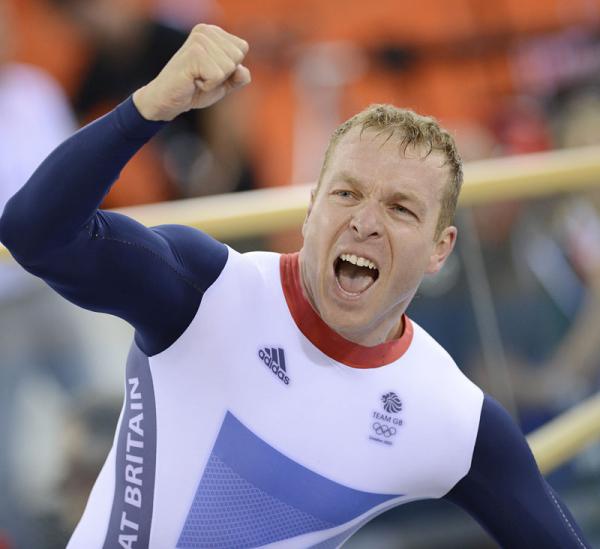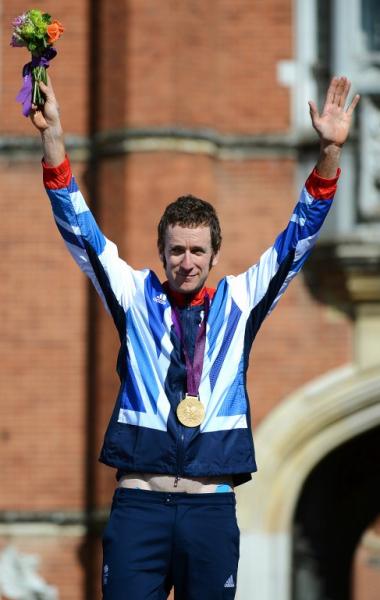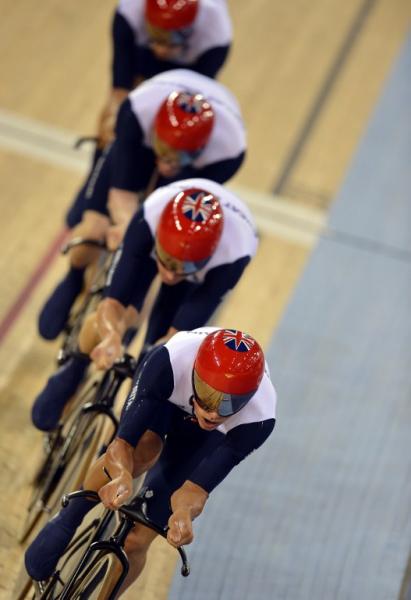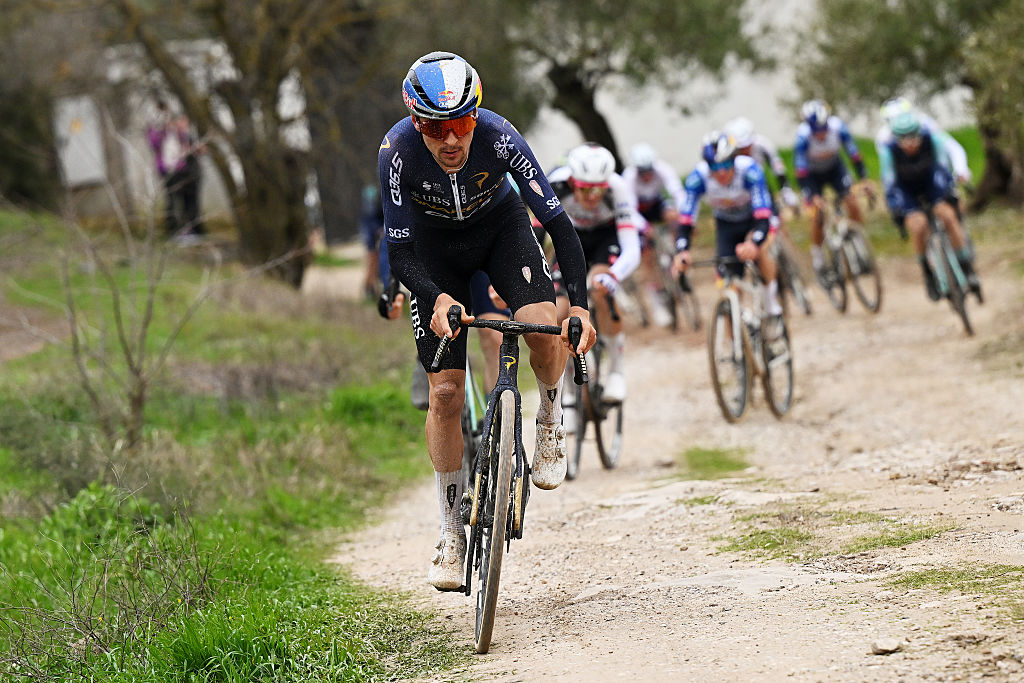"Marginal gains" bear fruit for Great Britain in Olympics
UCI president McQuaid confident of clean team
The latest race content, interviews, features, reviews and expert buying guides, direct to your inbox!
You are now subscribed
Your newsletter sign-up was successful



Great Britain has come a long way since the 1996 Atlanta Olympic Games: back then the country as a whole only earned one gold medal in rowing, and now in London they already have two golds in cycling alone with more likely to come, and new world records in team sprint and team pursuit.
Huge gains in cycling will always be met with suspicion of doping because of the sport's sordid history, but UCI president Pat McQuaid is confident that the programme is clean and that it is its philosophy of pursuing marginal gains which has led to its success - up to and including the Tour de France win and Olympic gold by Bradley Wiggins, and now more gold on the track.
"There is a lot of cynicism of success of Team Sky. I think a lot of that is misguided," McQuaid said before the Games commenced.
"They have constant communication between their support personnel and the athletes: they have doctors, physiologists, psychologists, sports psychologists, psychiatrists, sports psychiatrists, kinesiologists, chiropractors, nutritionists, dieticians, even an acupuncturist. They are all there to support the athletes, to ensure they can perform at the highest level.
"That works against doping. Because it is when an athlete goes into a little ravine and he's trying to climb out that he considers a doping programme. The fact they have people who can judge when a rider is going down and talk to him and bring him back out - professional people - form that point of view it's a new approach, a very modern approach. I think the teams and competitors in coming years will adopt a similar approach."
It has been a 16 year journey for the British program, which has blurred the line between its development programme and professional teams with the evolution of Team Sky. It has taken huge investments of money and effort, beginning with the track cycling programme and then adding the road.
In 1996, Chris Boardman and Max Sciandri took bronze in the road events, and the entire country netted only 15 medals. The British Olympic committee looked at track cycling as a sport in which the medal count could be improved. After increasing the focus on track cycling development over two years, the team improved in 2000 to win gold in the kilo (Jason Queally), silver in team sprint (Chris Hoy, Queally and Craig MacLean) and bronze in the women's pursuit (Yvonne Gregor) and men's team pursuit (Paul Manning, Chris Newton, Bryan Steel, Bradley Wiggins).
The latest race content, interviews, features, reviews and expert buying guides, direct to your inbox!
In 2004 the progression continued with cycling doubling its gold medal count: Wiggins won the pursuit, Hoy the kilo, and it was silver for the men's pursuit team, bronze for its Madison pair. Then in Beijing, everything came together in a perfect storm of medals - seven golds on the track in addition to Nicole Cooke's road race win, four silver and two bronze, and Great Britain had nearly as many medals in cycling alone than their entire country's medal count in the whole Atlanta Games.
"The secret of that success wasn't so much 'throw money at it and you'll win'," McQuaid said. "It's what you do with it. I think British Cycling through Peter Keen, followed by David Brailsford spent the money very wisely: in terms of attention to detail, developing athletes and developing support groups for the athletes, personnel and equipment.
"It's not something that happened overnight," he continued. "They gave Brailsford the objective of creating a Tour de France team, which he did. He set out attempting to win the Tour in five years. He took the same approach [with the road program as the track] ... all the little things to make sure the riders only have to ride their bike and nothing else. They have a huge support mechanism for all the riders, which isn't there with other teams. It hasn't happened by accident."
The track programme is still continuing its focus on these "marginal gains", and after day one, the unlikely repeat of its domination in Beijing has so far only been hampered by the relegation of the women's team sprinters in the first round.
Before the world record for Chris Hoy, Jason Kenny and Philip Hindes in the team sprint final, and another record for the men's team pursuit in the qualifying round, one of the tiny differences employed by the British team was revealed: the riders wear warming pants in order to keep their muscles at an optimal state between the warm up and start of competition.
"We noticed in previous championships that after warm up, your muscles cool, and when you then have to go and apply a lot of force in a short time like you do at the start of a team sprint, there is a slight lag off the line," explained Hoy.
"The hot pants aren't necessarily the significant difference, but they are a small piece of the formula, we have so many things to try to optimize," said Hoy. "The clothing, equipment, training analysis. Every possible detail we're trying to optimize, and the warming pants are part of that.
"It's hard to say if it made a difference, but we broke the world record twice, so we must have done something right."

Laura Weislo has been with Cyclingnews since 2006 after making a switch from a career in science. As Managing Editor, she coordinates coverage for North American events and global news. As former elite-level road racer who dabbled in cyclo-cross and track, Laura has a passion for all three disciplines. When not working she likes to go camping and explore lesser traveled roads, paths and gravel tracks. Laura specialises in covering doping, anti-doping, UCI governance and performing data analysis.
